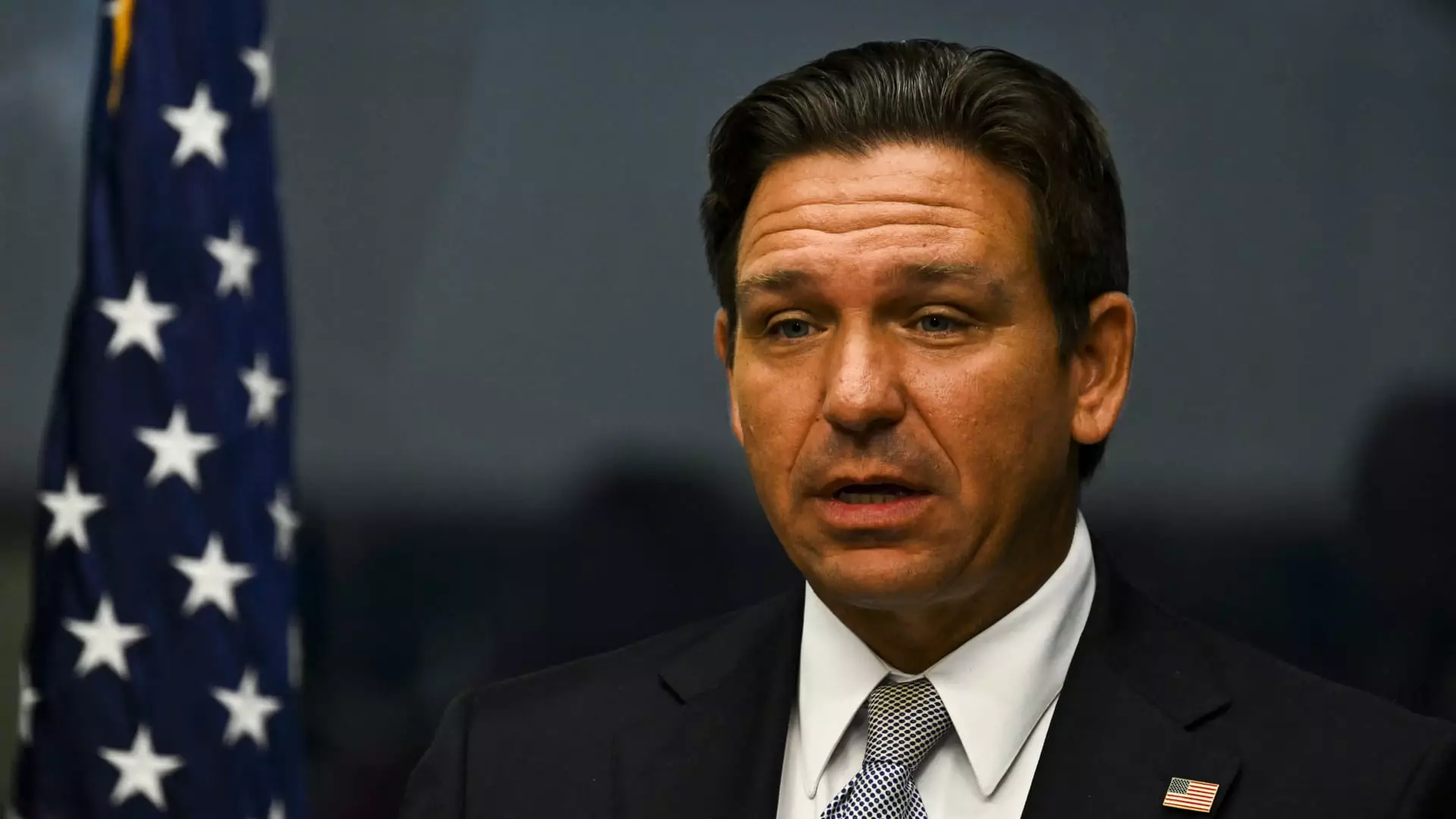The aftermath of a natural disaster often tests the mettle of political leaders. In Florida, the recent devastation caused by Hurricane Helene has put Governor Ron DeSantis in the national spotlight, particularly regarding his responses to outreach from Vice President Kamala Harris. The governor’s reluctance to engage with Harris raises questions about the intersection of politics and crisis management and highlights the challenges leaders face in balancing public service and political maneuvering.
Hurricane Helene made landfall in Florida’s Big Bend region on September 27, leaving a trail of destruction primarily focused on rural areas and coastal cities plagued by significant flooding and debris. As Florida grapples with the severe impacts of this storm, the state’s resources have been stretched thin, underscoring the necessity for coordinated disaster management efforts. While the state struggles with recovery, it is crucial to analyze how political dynamics shape the flow of aid and communication between state and federal authorities.
Reports indicate that DeSantis has effectively sidelined efforts to engage with Harris, opting instead to maintain a distance due to perceived political motives behind her outreach. As a Democrat, Harris’s communications may be viewed as self-serving by the Republican governor—a stance that could further complicate recovery efforts. The decision not to take calls from federal officials during a critical time reflects a broader trend where political affiliations overshadow collaboration, which is essential for effective crisis response.
DeSantis’s communication with the Federal Emergency Management Agency (FEMA) Director Deanne Criswell offers a stark contrast to his reluctance to connect with Harris. This selective engagement raises concerns about whether political considerations impede effective disaster response. While he is “handling” the situation domestically, the reluctance to communicate at a political level with high-ranking federal officials puts additional strain on recovery efforts.
DeSantis’s choice to focus on coordination with FEMA rather than engaging with Harris highlights a strategic decision that may stem from a desire to secure state-level autonomy during a crisis. However, the potential fallout from this approach raises the question: does it compromise the speed and efficacy of recovery?
Interestingly, other governors facing similar challenges have shown a willingness to collaborate with the Biden administration. For example, Georgia’s Governor Brian Kemp has publicly expressed gratitude to President Biden for federal assistance, while South Carolina’s Governor Henry McMaster rated the federal response as “superb.” This explicit acknowledgment of support contrasts sharply with DeSantis’s reticence, illuminating a divergent approach that could influence public perception and recovery outcomes.
Beyond rhetorical engagements, DeSantis undertook “Operation Blue Ridge,” sending Florida resources to North Carolina, thus demonstrating an ability to act in solidarity with neighboring states during crises. However, as Florida braces for the approaching Hurricane Milton, the need for cooperative resource management remains crucial in mitigating potential damage and ensuring swift recovery.
The impacts of a natural disaster extend beyond physical damage and emotional trauma; they are deeply intertwined with political narratives. The politicization of Hurricane Helene, particularly through former President Donald Trump’s social media commentary and public appearances, underscores that disaster recovery is not merely a logistical challenge but also a political battleground. Trump’s assertion that Harris’s briefings were “fake and staged” exemplifies how political narratives can divert focus from the pressing need for humanitarian assistance and effective recovery efforts.
This interplay between disaster management and political rhetoric creates an environment where collaborative efforts may become secondary to political posturing. As critical resources and emergency aid are distributed, the focus must remain on the victims of the storm—rather than allowing politics to overshadow the urgent need for coordinated recovery efforts.
In the wake of Hurricane Helene, the unfolding events in Florida reveal how political dynamics can complicate disaster recovery. The apprehension between Governor DeSantis and Vice President Harris demonstrates the importance of overcoming political barriers to foster effective communication and collaboration in times of crisis. As natural disasters continue to challenge states, it is imperative that leaders prioritize public welfare over political gain, ensuring that recovery efforts are seamless, swift, and devoid of unnecessary political tension. Only through unity and cooperation can states hope to rebuild and recover from the devastation that hurricanes and other disasters bring.

Leave a Reply